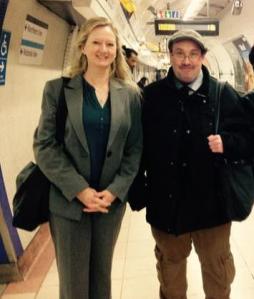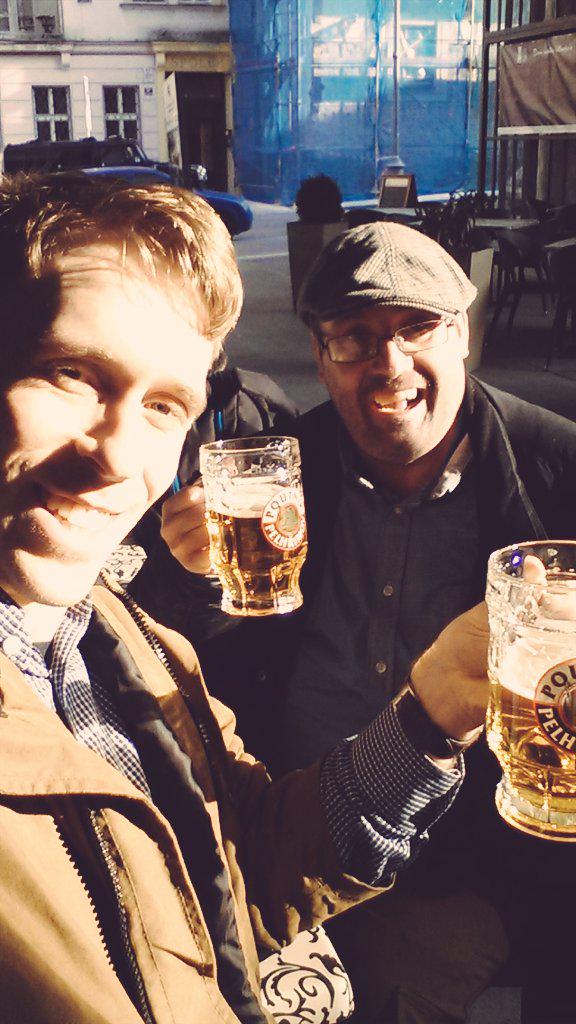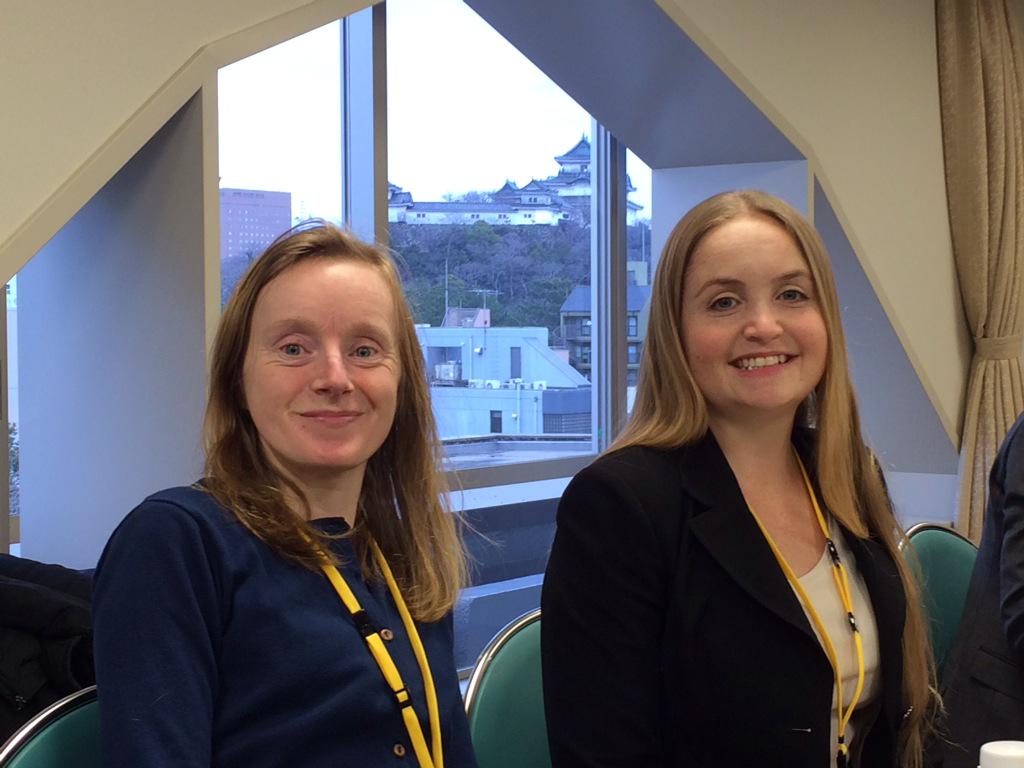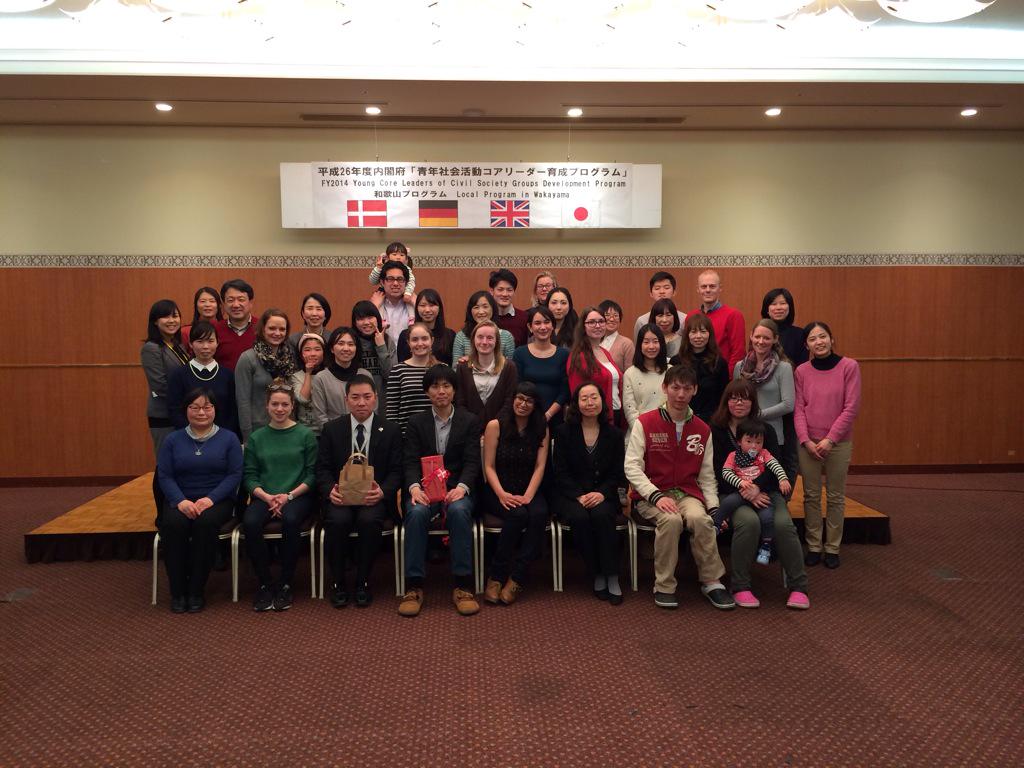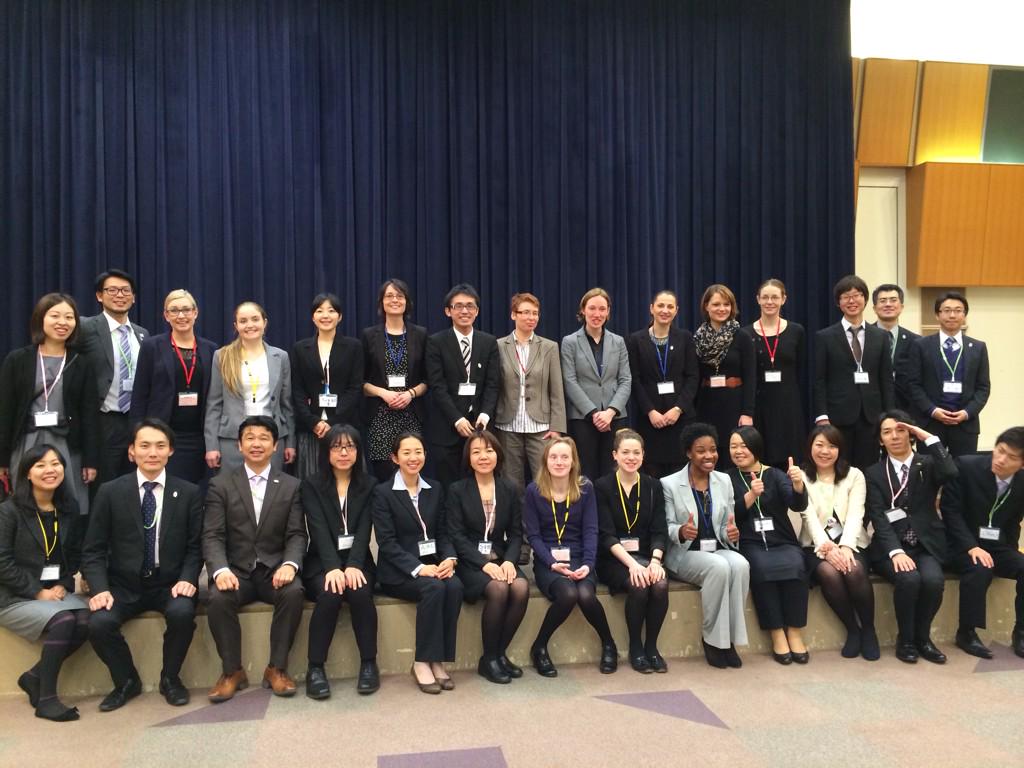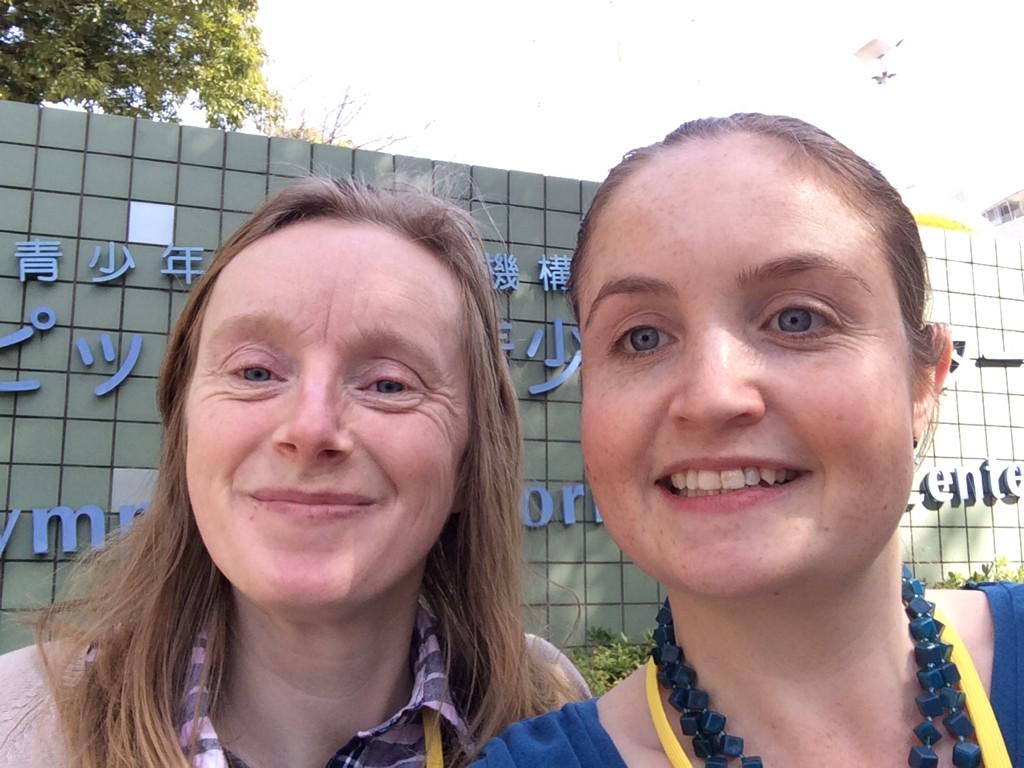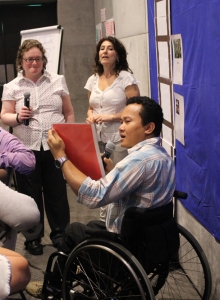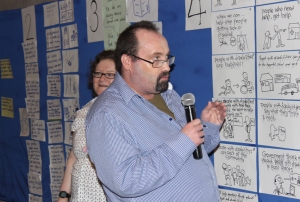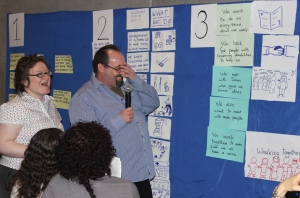Guest blog by Erin Fahey, Shaun Webster and Jai Rae
Two heads are better than one.
It’s a saying said by many and often. In fact, its a phrase that was first recorded in 1545.
Here at CHANGE we know its true; we call it co-working.
At CHANGE we employ two people to work on all of our projects, one person has a learning disability, one doesn’t, both have different skills and expertise. Why? Because two heads really are better than one. By sharing our skills and expertise we can learn from each other, support each other and create a bigger impact and a higher quality of work.
Our International Project Worker Shaun has been using the co-working model throughout his 12 years at CHANGE and has worked with many different co-workers along the way. He has learnt a lot from all of them in different ways, and they have learnt a lot from him.
In May we welcomed Jai Rae to CHANGE who is working as part of our Projects Team alongside Shaun on our international work, as well as co-delivering our employment and better communication training courses.
In today’s blog, Shaun and Jai reflect on what they have learnt from each other so far and how they plan to develop their work together going forward.
Shaun
“I was a bit shy and nervous the first day Jai and I worked together but she was very friendly and open. I’m very excited working with Jai as I’m learning new skills doing drama in our presentations. When we did our first drama on Employment I felt confident as I didn’t have to learn loads of stuff, we improvised around real life situations. What I like is that we’re learning new things by ‘doing’ them, not just writing them on paper. I feel very comfortable with Jai as we both respect each other and listen to each other, we can tell each other things and understand each other. I look forward to coming to work. Other people say we work well together and that it looks like we have been working together for a long time”.
Jai
“From the first day working together Shaun and I found we had a lot in common and shared the same passion that drama is a very powerful way of working with people. Shaun has a lot of experience and knowledge from working on all kinds of projects and I am enjoying learning from him. When we start work on a new project we discuss ideas of what we both think may be good to include. We both really listen to each other and are able to speak openly, both sharing the same sense of humour and passion to improve the lives of the people we are working for. Shaun and I are also learning new skills together, we are helping each other learn to tweet and we are excited to be developing new training packages together. We have a great partnership, we make all decisions jointly, have equal input, and really enjoy working together.”
Co-working really isn’t that hard to do. It may take time, and it may cost money but it unlocks skills and talents in team members and gives people the opportunity to work in meaningful, fulfilling and influential roles who wouldn’t usually get the chance. It is an inclusive way of working, and a way we should all be working.
We all need support in the workplace, and we all have something to bring, whatever needs we have. This year we want to see more organisations adopt the co-working model and more people with learning disabilities, autism and additional support needs in the workplace. Together we can achieve great things.
You can see co-working in practice and hear more about the importance of meaningful employment here:
